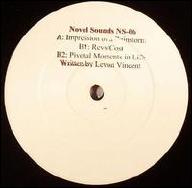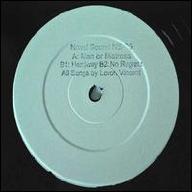Vincent was born in Houston, Texas but his family moved to New York City when he was a child, and life within and around the city has always had a major impact on his work. He started DJ'ing as a teenager, and worked at record shops in lower Manhattan and later Brooklyn. He studied 20th century post-minimalism, theory, and orchestration at Purchase College, and undertook master classes with Philip Glass. His earliest tracks surfaced through his short-lived More Music NY imprint during the early 2000s, and a 2005 white label titled "Love Technique" was properly released by Ovum Recordings in 2006. He launched Novel Sound in 2008 with These Games EP (including a track by colleague Jus-Ed).
By the end of the decade, Vincent was frequently namechecked as a major part of New York's house renaissance, and he was regularly playing nights at major clubs in Europe, including Fabric, Berghain, and Robert Johnson. He moved away from New York to concentrate on music, spending time in the Midwest before eventually relocating to Berlin. Fabric 63, a mix consisting of his own productions as well as tracks by friends such as Joey Anderson and Fred P (Black Jazz Consortium), was released in 2012. He continued issuing singles and EPs through Novel Sound, with releases like Man or Mistress (2011) and Rainstorm II (2013) emerging as fan favorites.
Levon Vincent, a full-length debut with characteristically minimalist packaging, was released in 2015, soon earning enthusiastic reviews. The Japan-only Rarities compilation was issued by P-Vine in 2016. For Paris (2017), Vincent's second album, was a reflective collection of minimal house, while World Order Music (2019) was more upbeat and celebratory. He released the four-part Dance Music series in 2019, and numerous singles and EPs appeared throughout the early 2020s, including 2021's Enchanted Cosmos and 2022's ETA Infinity. Fourth album Silent Cities was released in June of 2022. Primarily written before the COVID-19 pandemic and recorded at a studio in Berlin -- unlike his previous work, which was all done at home -- the album was created for home listening, with tempos set at 72 beats per minute or below. Additionally, the pieces were composed using just intonation as well as scales of Vincent's own design, with no tracks using standard Western tuning. ~ Paul Simpson & Andy Kellman, Rovi














